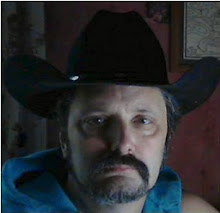The Idea of Freedom
by
Norman Cousins
from
"A Community of Hope and Responsibility"
Saturday Review
16 Jun 1962
There is no greater political or philosophical fallacy than the notion that freedom is not really an ideology. The ideology of freedom has the deepest foundation of all. It is fused with the nature of man. It exists in the molecular structure of man's own natural rights.
What is this ideology?
It is based on the proposition that government exists for the purpose of enhancing and protecting the natural and fundamental rights of individual human beings.
These rights do not have to be created or contrived. They exist. They are natural, essential, irrevocable. They come with the gift of life. The good society may recognize these rights but it cannot invent them. It cannot alter them, it cannot expunge them. Its obligation is to create the conditions under which they can grow and be secure.
Highest among these natural rights is the right of man to own himself. He cannot be owned by a nation, a group, or another man.
He owns the right to grow and to meet his potential.
He owns the right to appraise his abilities and to develop them and apply them, consistent with the rights of others.
He owns his thoughts and the right to nourish them and speak them, again consistent with the rights of others.
He owns the right to make mistakes, whether of thought or deed, without unreasonable punishment.
He owns the right to his hopes.
He owns the right to justice, whether his claim is against a person, an aggregation, or his own government.
He owns the right to contemplate human destiny and the mysteries of universal purpose, or the right to detach himself from these pursuits.
He owns the right to hold grievances against his society and to make them known to other men in order to magnify his own voice.
He owns the right to make a better life for his young.
It is in these respects that a free society is not just a nation. It is an idea. It is a national sovereignty committed to the cause of human sovereignty. It seeks to create a proper environment for man's most enduring hopes. It is an instrument through which man may work for a fuller life—whether in terms of his physical needs or his creative and spiritual reach.
Our own free society has not yet fulfilled all these purposes. No one knows how near to or far from such fulfillment the American people may be. But the direction is clear. And the effort, however vast, will continue to be made. The great ideals and ordeals of human history go together.


No comments:
Post a Comment
Thank you for your interest. James Duvall, M. A.